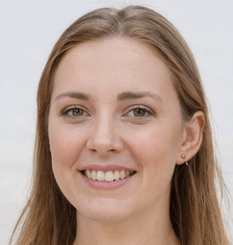Africare’s History in Nigeria
For more than 30 years, Africare has partnered with communities, local, state and national government in Nigeria to improve access and quality of health, water/sanitation, economic empowerment and other services. Africare’s work in Nigeria began in 1978 with a small donation of medical equipment in support of a non-profit community health care initiative. As the country transitioned politically and in its approach to meeting its development needs, Africare remained a leading international partner on strengthening service delivery, management systems, and policies for sustained impact of programs, particularly in the areas of maternal, newborn and child health, family planning and reproductive health, and more recently HIV/AIDS.
By leveraging strong community and government partnering with diverse funding from donors ranging from USAID, CDC, World Bank, Japan Social Development Fund to private donors such as Shell, Ford and MacArthur Foundation, Africare has delivered over $32 million in programming that has improved the health and economic well being of thousands of Nigerians. During the 1980s and 90s, Africare received funding from USAID and other donors to implement large-scale projects to improve maternal and child health, and family planning services. Africare was also a leading partner in the country’s onchocerciasis (“river blindness”) control program in the 1990s receiving support from USAID, UNICEF, Merck & Co. and other donors to provide community-level treatment services in endemic areas of the north and to model community engagement to combat the disease throughout the country.
Over its 32-year history in Nigeria, Africare has been consistent in its commitment to partnering with government, donors, and communities to reach some of the country’s most at-risk populations. Africare’s main office was initially in Lagos, with field offices in a numbers of states based on program commitments. In the early 90s, Africare had over 60 program and technical staff in eight state field offices – Lagos, Kwara, Taraba, Kaduna, Kogi, Imo, Adamawa, and Borno. In 2001, the country office moved to Abuja. Increased focus on HIV/AIDS, malaria, and reproductive health has led to expanded programming managed out of regional project offices in the Rivers State in the Niger Delta and in Lagos.
Africare-Nigeria Today
Africare’s current programming reflects a continued commitment to assisting Nigeria in meeting its priority development needs, particularly in the area of health. The country’s HIVAIDS and malaria disease burdens are among the highest in Africa and the world. Africare continues to receive funding through USAID and since 2006, the Centers for Disease Control and Prevention (CDC) to strengthen community systems to address prevention, care and support in some of the country’s highest HIV prevalence areas in Lagos state and in the Niger Delta. The Niger Delta is also the focus of expanded support to communities to strengthen awareness and capacity to support the growing population of Orphans and Vulnerable Children (OVC).
Since 2003, Africare has also expanded it work in malaria prevention and treatment under large-scale projects funded by Shell and Global Fund. Malaria programming in the Nigeria under Global Fund now covers all six states of the South-South (Niger Delta) Region. And beginning in 2004, Africare has managed programming to expand access to reproductive health services and reduce risk for HIV/AIDS among adolescent girls and women most at risk.
The Africare program in Nigeria will continue to focus on strengthening community health service delivery to provide integrated services that address the most pressing family health needs. By focusing on the Niger Delta, Lagos, and a small number of core north and north central states where Africare has a long history of effective partnership, programs can provide a wider range of technical and management support to build sustainable community and government service delivery systems.
Country Profile: Nigeria
REGION: West Africa
CAPITAL CITY: Abuja
POPULATION: 144.7 million
LAND AREA: 910,768 sq. km (565,924 miles)
Strikingly, Nigeria has just 4 percent of the land area of Sub-Saharan Africa ― but 17 percent (about one-sixth) of the region’s population. It is also Africa’s most populous country. Thus, the health, economic status and other quality-of-life indicators of the Nigerian people have an enormous impact on the health, economy and quality of life of Africa as a whole. Further, with more than 250 ethnic groups, Nigeria is arguably the most culturally-diverse society in the world. The oil and natural gas sector accounts for more than 90 percent of the country’s foreign exchange earnings, and Nigeria is Africa’s largest oil exporter. Despite the country’s vast human and mineral resources, most individual Nigerians share the same level of underdevelopment as their African neighbors. About three-quarters of all Nigerians live in absolute poverty. And the U.N. Development Program’s Human Development Index for 2007/2008 ranks Nigeria among the 20 least-developed countries in the world.
|
Country Stats Life expectancy: 46.5 years (USA: 77.9) Under-5 child mortality: 194/1,000 live births (USA: 7/1,000) HIV prevalence, ages 15-49: [2.3 – 5.6]% (USA: [0.4 – 1.0]%) Physicians per 100,000 people: 28 (USA: 256) People undernourished: 9% (USA: 0%) People with access to safe drinking water: 48% (USA: 100%) Adult literacy: 69.1% (USA: 99%) Gross National income per capita: $1,410 (USA: $41,890) People living on less than $1 a day: 70.8% (USA: 0%) (HIV prevalence statistics, UNAIDS. All other statistics, 2007/2008 Human Development Report, UNDP) |

Barbara Meier schreibt seit vielen Jahren für die NPAlliance Ratgeber und Testberichte. Dabei legt sie großen Wert auf die Ausführlichkeit sowie Richtigkeit ihrer Artikel. Sie zählt zu den wenigen Experten in ihrem Gebiet und hat sich über die letzten Jahren einen Namen in der Gesundheitsbranche gemacht.
